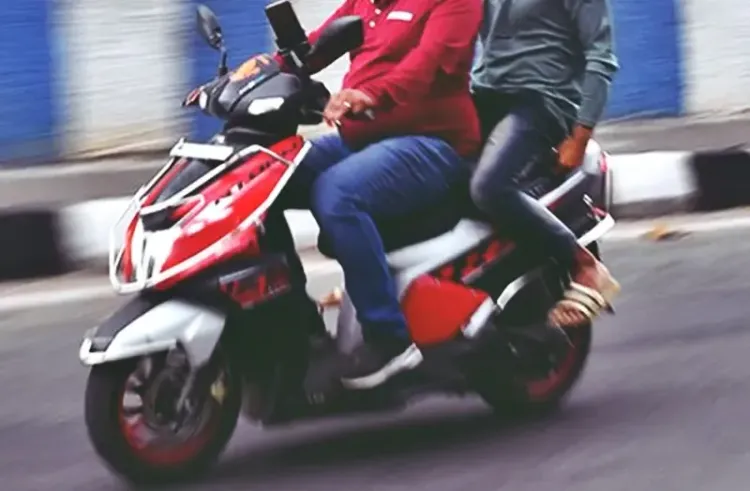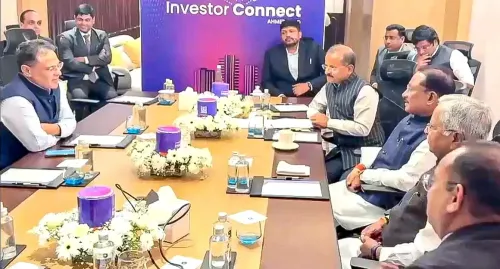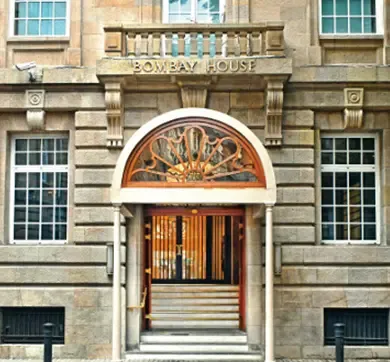Maharashtra Government Announces Guidelines for E-Bike Taxis

Synopsis
Key Takeaways
- Maharashtra government issues strict guidelines for e-bike taxis
- Expected to create 20,000 jobs in the state
- All taxis must be electric and adhere to safety standards
- Female passengers can choose their drivers for safety
- Operational through dedicated app/website
Mumbai, April 22 (NationPress) The Maharashtra government has issued a notification detailing strict regulations for the eligibility, safety, and pricing of the upcoming electric-bike taxi service, also known as the two-wheeler bike-taxi collective service (aggregator), aimed at cities with a minimum population of 100,000. This initiative is anticipated to assist individual passengers traveling distances of up to 15 km and will encompass Mumbai along with various other urban regions in the state.
Significantly, on April 1, the state cabinet approved the launch of e-bike taxis.
The State Transport Officer will grant a single permit applicable throughout the state.
Transport Minister Pratap Sarnaik has stated that this initiative is projected to generate over 10,000 jobs in the Mumbai Metropolitan Region (MMR) and an additional 10,000 across the rest of Maharashtra.
As per the notification, the bike-taxi coverage license will be valid for a period of five years.
All two-wheeler taxis must be painted in purple, featuring the bike-taxi label, along with the name and contact number of the service provider. The vehicles are required to adhere to emission standards, and all two-wheelers operated by aggregators must be entirely electric.
Drivers of the two-wheelers must possess a valid permit in accordance with Section 3 of the Motor Vehicles Act, 1988, and should hold a badge as per Rule 4 of the Maharashtra Motor Vehicles Rules, 1989.
Eligible drivers should be aged between 20 and 50 years, with a maximum riding limit of eight hours per day. The service providers are obliged to offer free rides to all bike riders.
Training will be provided to the two-wheeler drivers, including background checks. Furthermore, drivers will be required to operate a motorbike and adhere to the speed limits set by transportation regulations.
The notification stipulates that over time, the proportion of female drivers should gradually increase to 50 percent, with the responsibility resting on the owners. The necessary infrastructure for the two-wheeler taxi service will include dedicated two-wheelers, taxi stands, pick-up and drop-off locations, and adequate charging stations, ensuring a sufficient number of vehicles are available for commuters.
In terms of safety standards, each two-wheeler driver is permitted to carry only one passenger, and children under 12 years are prohibited from riding. To enhance the safety of female passengers, all bike taxis must be equipped with a partition separating the driver from the female passenger.
During the rainy season, a guardrail will be installed to safeguard both drivers and passengers. GPS tracking, emergency contact capabilities, speed verification, and helmets for both drivers and passengers will be compulsory.
The responsibility for providing insurance coverage for both accidents and fatalities for two-wheeler drivers and passengers will lie with the service providers.
The fares for two-wheeler taxis will be regulated by the relevant Regional Transport Authority.
The operation of two-wheeler taxi services will be facilitated through a dedicated app or website.
A statement from the Chief Minister's Office (CMO) following the cabinet meeting held on April 1 indicated that the state government is executing various initiatives to offer innovative transportation solutions to citizens. This policy approval for e-bike taxis enables operations in cities with populations exceeding 100,000. All vehicles must possess a valid fitness certificate, legal permit, and insurance coverage in accordance with the Motor Vehicles Act. The fare structure for e-bike taxis will be established by the respective Regional Transport Authority (RTA).
As per the CMO, this initiative aims to provide citizens with a cost-effective last-mile connectivity option, alleviate pollution, reduce traffic congestion, and expedite travel time. Female passengers will have the choice to select drivers of their gender for enhanced safety and convenience.
(Sanjay Jog can be contacted at sanjay.j@ians.in)








